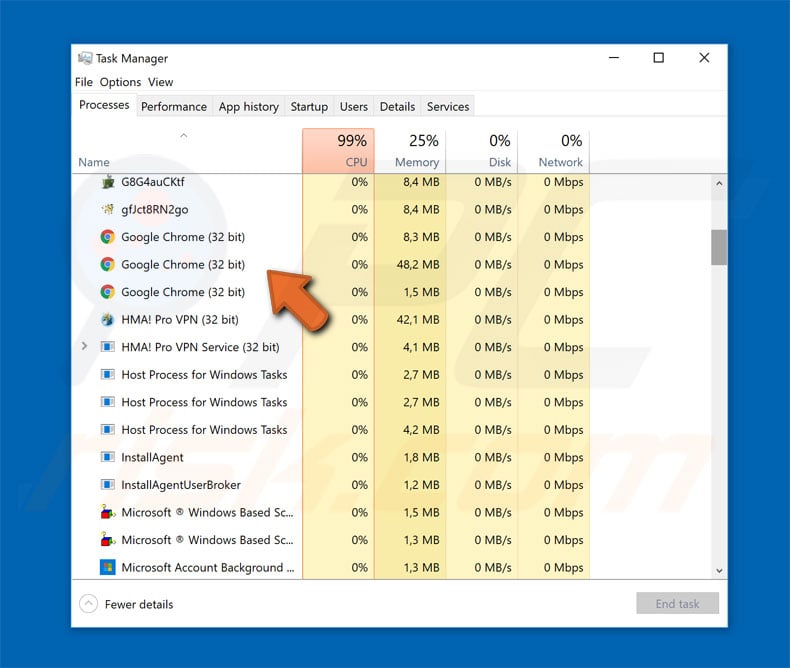Is Google Chrome 2 a virus?
Summary of the Article:
If you’re seeing some of these problems with Chrome, you might have unwanted software or malware installed on your computer:
- Pop-up ads and new tabs that won’t go away.
- Your Chrome homepage or search engine keeps changing without your permission.
- Unwanted Chrome extensions or toolbars keep coming back.
15 Questions and Detailed Answers:
1. How do I know if my Google Chrome has a virus?
If you’re seeing some of these problems with Chrome, you might have unwanted software or malware installed on your computer:
Pop-up ads and new tabs that won’t go away.
Your Chrome homepage or search engine keeps changing without your permission.
Unwanted Chrome extensions or toolbars keep coming back.
2. Is Google Chrome safe from viruses?
Chrome is secure by default, protecting you from dangerous and deceptive sites that might steal your passwords or infect your computer. Advanced technologies, such as site isolation, sandboxing, and predictive phishing protections, keep you and your data safe.
3. How do I get rid of fake Google Chrome virus?
To remove the virus, follow these steps:
1. Open Chrome.
2. Click on the three dots in the top right corner to open the drop-down menu.
3. Scroll down to Settings.
4. Once in settings, go to Advanced > Reset and clean up.
5. Click Clean up computer and select Find harmful software.
6. Delete any malicious programs found in the browser.
4. How do I know if Chrome is safe?
On your Android phone or tablet, open the Chrome app.
Tap More, then Settings.
Tap Safety Check.
Check now.
If Chrome finds any issues:
Tap the item with the issue.
Follow the instructions on screen.
5. How do I know if my browser has a virus?
To run a virus scan on Google Chrome, follow these steps:
1. Click the three dots in the top-right corner and choose “Settings.”
2. Choose “Reset and clean up” on the left menu.
3. Click on “Clean up computer.”
4. Click “Find.” We recommend that you untick the “Report details” field below to avoid giving additional info to Google.
6. How do I scan Chrome for malware?
Google Chrome has a hidden antivirus scanning feature that can scan for malicious software running on your Windows computer. To access it, click the top right menu and go to settings.
7. Why do I keep getting fake virus notifications?
Generally speaking, if you’re seeing pop-ups on your device about viruses, they’re probably pop-up viruses. This is even more likely to be the case if you don’t have antivirus software installed (or have a different provider than the one shown in the notifications).
8. Which version of Chrome is safe?
To check if you are protected, navigate to Settings > Help > About Google Chrome. If your Chrome version is 94.0. 4606.81 or higher, you are safe.
9. What is the safest browser?
Chrome may be the most secure browser on the internet, but it’s also one of the worst for user privacy. Google Chrome is available for Windows, macOS, Android, iOS, and Linux.
10. What are the signs that your browser has been hacked?
How to know if you’ve been hacked:
– You get a ransomware message.
– You get a fake antivirus message.
– You have unwanted browser toolbars.
– Your internet searches are redirected.
– You see frequent, random popups.
– Your friends receive social media invitations from you that you didn’t send.
– Your online password isn’t working.
11. Will uninstalling Chrome get rid of malware?
It’s possible, but if you were signed in to a Google account while using your browser, all your data would have been backed up to the cloud.

How do I know if my Google Chrome has a virus
If you're seeing some of these problems with Chrome, you might have unwanted software or malware installed on your computer:Pop-up ads and new tabs that won't go away.Your Chrome homepage or search engine keeps changing without your permission.Unwanted Chrome extensions or toolbars keep coming back.
Is Google Chrome safe from viruses
Chrome is secure by default, protecting you from dangerous and deceptive sites that might steal your passwords or infect your computer. Advanced technologies, such as site isolation, sandboxing, and predictive phishing protections, keep you and your data safe.
How do I get rid of fake Google Chrome virus
To remove the virus, you should:Open Chrome.Click on the three dots in the top right corner to open the drop-down menu.Scroll down to Settings.Once in settings, go to Advanced > Reset and clean up.Click Clean up computer and select Find harmful software.Delete any malicious programs found in the browser.
How do I know if Chrome is safe
On your Android phone or tablet, open the Chrome app .Tap More. Settings.Tap Safety Check. Check now.If Chrome finds any issues: Tap the item with the issue. Follow the instructions on screen.
How do I know if my browser has a virus
How to run a virus scan on Google chromeClick the three dots in the top-right corner and choose “Settings.”Choose “Reset and clean up” on the left menu.Click on “Clean up computer.”Click “Find.” We recommend that you untick the “Report details” field below to avoid giving additional info to Google.
How do I scan Chrome for malware
Did you know that google chrome has a hidden antivirus scanning feature that can scan for malicious software running on your windows. Computer to get to it click the top right menu. And go to settings
Why do I keep getting fake virus notifications
Generally speaking, if you're seeing pop-ups on your device about viruses, they're probably pop-up viruses. This is even more likely to be the case if you don't have antivirus software installed (or have a different provider than the one shown in the notifications).
Which version of Chrome is safe
To check if you are protected navigate to Settings > Help > About Google Chrome. If your Chrome version is 94.0. 4606.81 or higher, you are safe.
What is the safest browser
Chrome may be the most secure browser on the internet, but t's also one of the worst for user privacy. Google Chrome is available for Windows, macOS, Android, iOS, and Linux.
What are the signs that your browser has been hacked
How to know if you've been hackedYou get a ransomware message.You get a fake antivirus message.You have unwanted browser toolbars.Your internet searches are redirected.You see frequent, random popups.Your friends receive social media invitations from you that you didn't send.Your online password isn't working.
Will uninstalling Chrome get rid of malware
It's possible, let us explain. We can eliminate all Chrome-related files from our computer when we uninstall it, removing any malware on our computer. However, if you were signed in to a google account while using your browser, all your data would have been backed up to the cloud.
How do I know if a virus warning is real
Search the product name: When in doubt, look up the name you see in the warning. If you can't find it online, or if the alleged company has terrible reviews, it's almost certainly a fake. Close your browser: To get rid of the ad, close your browser — don't click the “X” on a fake virus pop-up.
How do I get rid of fake virus alert Chrome
If you're seeing annoying notifications from a website, turn off the permission:On your Android phone or tablet, open the Chrome app .Go to a webpage.To the right of the address bar, tap More Info .Tap Site settings.Under "Permissions," tap Notifications.Turn the setting off.
Why my Chrome is not safe
The reason you are seeing the “Not Secure” warning is because the web page or website you are visiting is not providing an encrypted connection. When your Chrome browser connects to a website it can either use the HTTP (insecure) or HTTPS (secure).
What is the top unsafe browser
Worst Browsers for PrivacyGoogle Chrome.Yandex Browser.Microsoft Edge.Baidu.Apple Safari.
Which is safer Chrome or Safari
While Chrome has a slight edge when it comes to keeping abreast of security threats, Safari has a much better track record of being more transparent than Google when it comes to a private browsing experience. Verdict: When it comes to user privacy, Safari wins hands-down.
What are the 2 possible signs that you have been hacked
Common warning signs of a cyberhackPassword reset emails.Random popups.Contacts receiving fake emails or text messages from you.Redirected internet searches.Computer, network, or internet connection slows down.Ransomware messages.
How do I check if my browser has a virus
Check the database – download your database and scan it with antivirus software. Review using Google Safe Browsing – use Google tools to check for malicious content. Check with virus scan tools – do a security check automatically with different virus scanning tools.
How do I remove all viruses from Chrome
To remove viruses from Chrome for Windows, follow these steps: STEP 1: Use Rkill to terminate malicious processes. STEP 2: Uninstall malicious programs from your computer. STEP 3: Remove malicious browser policies from Windows.
How do I get rid of Chrome fake virus notifications
Change Chrome Notification Settings on AndroidOpen the Chrome app.To the right of the address bar, tap More ⋮ > Settings.Tap Site Settings > Notifications.Tap the suspicious website, then tap either Block or Remove.
What do fake virus warnings look like
Fake virus warnings commonly appear on your screen as pop-ups warning you about some urgent malware threat and encouraging you to act immediately and download their product. Fake virus warnings can also appear as fake spyware warnings or fake system notifications.
Are fake virus notifications real
These alerts may be convincing, but they aren't real — and they don't help you or protect your computer in any way. In fact, these types of alerts are usually created by cybercriminals to try to trick you into installing malware on your device.
Which version of Chrome is not safe
These vulnerabilities could be exploited by a remote attacker to bypass security restriction, execute arbitrary code or cause denial or service conditions on the targeted system. As per CERT-In, Google Chrome versions prior to 106.0. 5249.61 for Mac/linux and 106.0. 5249.61/62 for Windows were impacted.
Which is safest browser
Secure BrowsersFirefox. Firefox is a robust browser when it comes to both privacy and security.Google Chrome. Google Chrome is a very intuitive internet browser.Chromium. Google Chromium is the open-source version of Google Chrome for people who want more control over their browser.Brave.Tor.
What browser does Apple recommend
Safari
Safari is the best way to experience the internet on all your Apple devices.



0 Comments